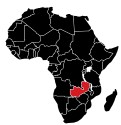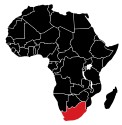

PROGRAMMES
The African Agri Council NPC (AAC) believes Africa’s agrifood development must be based on sound economic and business principles to ensure long term sustainability.
As a result, all our programmes and initiatives are built on a solid business foundation, with an understanding that accelerated food and agriculture funding and investment combined with human capital development can usher a new era of African agribusinesses.


Market Support Programme (MSP) supports agrifood entrepreneurs with technical, operational and management capability as they aim to reach new markets.
Our goals are: i) Capture and proactively engineer network effects for market access and value chain integration. ii) Manage performance with a pragmatic growth mind-set. iii) Develop.

Agri-Food Tech Innovation (AFTI) is a world class agtech incubator and accelerator initiative created and designed to strengthen technology innovation and commercialization to harness the entrepreneurship of the agrifood technology community.
we combine tech innovation and business fundamentals in agrifood.

Co-op Support Programme (CSP) is a consulting and training programme developed to strengthen and consolidate the institutional and commercial capacities of farmers’ cooperatives. CSP provides a platform for cooperatives to evolve into performing, resilient and sustainable organizations capable of contributing to agricultural policies and development.



Athari Africa is our capacity building program launched to develop and upskill African agribusinesses and cooperatives through the transfer of skills and technology.
COUNTRY
DESCRIPTION
South Africa

Project Focus:
FAO Technical Assistance on Expansion Programme
for Women in Agro-Processing and Agribusiness
(EPWAA) in South Africa
Number of beneficiaries:
223
Year:
2022
Main partner:
South African Department of Agriculture, Land Reform
and Rural Development
Food and Agriculture Organization of the United
Nations
Zambia

Project Focus:
Dairy and fish production
Number of beneficiaries:
80
Year:
2023
Main partner:
The Deutsche Gesellschaft für Internationale
Zusammenarbeit GmbH (GIZ)
Athari Africa in Zambia targeted MSEs and cooperatives in the dairy and fish sector that have achieved an entry level processing capacity. Our interventions focused on sustainable productions, strategic partnerships and market penetration strategies.
Nigeria

Project Focus:
Women in vegetable, grain, poultry and fish
production
Number of beneficiaries:
80
Year:
2023
Main partner:
Nigeria Association of Women In Agriculture
The AAC’s objective in Nigeria is to provide support to women who are operating at different levels of production and support them particularly in the areas of agribusiness and agro processing. Our interventionsfocused on fast-tracking active participation of women in the agricultural sector beyond primary production – of vegetable, grain, poultry and fish production – into agro-processing, agribusiness, commercial and export
levels.
Burkina Faso

Project Focus:
Cassava, soja beans, cashew value chain
development
Number of beneficiaries:
80
Year:
2023
Main partner:
The Deutsche Gesellschaft für Internationale
Zusammenarbeit GmbH (GIZ)
The AAC interventions in Burkina Faso focused on cassava, soja beans, cashew value chain development as well as stakeholders (farmers, processors and traders/aggregators) specific needs. Our approach centred on water management, waste management, harvest and post-harvest, supply chain management, market research, mechanisation (innovations) and business linkages.
Botswana

Project Focus:
Support for Capacity Building for Horticulture Farmers
Number of beneficiaries:
4 associations
Year:
2021
Main partner:
Botswana Ministry of Agriculture
Food and Agriculture Organization of the United
Nations
The AAC’s main objective in Botswana was the development of an integrated marketing strategy that will address various challenges faced by the horticulture sector in the country with a clear focus on financial considerations, production output, strategic partnerships and access to local, regional and international markets.
South Africa (Limpopo and Free State)

Project Focus:
Value Chain Facilitation For Building Climate Smart
Inclusive Value Chains In Limpopo and Free State
Provinces of South Africa
Number of beneficiaries:
100
Year:
2021
Main partner:
Food and Agriculture Organization of the United
Nations
The AAC’s interventions focused on facilitating the profitable participation of women farmers in climate smart value chains through a buyer/aggregatormodel with negotiated offtake agreements, as well as the implementation of climate smart and land care practices.
Human Capital Development to achieve
sustainable and resilient food systems

